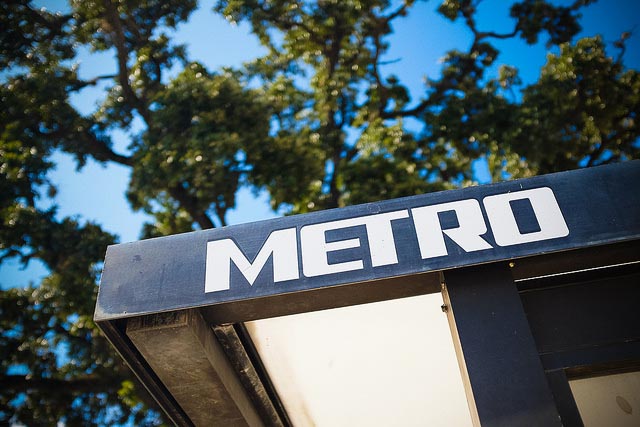As a politically active Harris County resident, I did not care for the ballot measure until the past month.
On September 16, I canceled my parking permit at Rice University because I was done paying for parking, done driving over an hour to work, done paying for gas every three days, and done paying for the inconvenient surprise repairs, service and maintenance costs on my vehicle.
My choice wasn’t out of rage or animosity to Rice, rather, I couldn't afford to keep driving – financially or for my sanity. I drive a Ford Focus, a relatively fuel-efficient compact car, but the brake, tires, wheels, battery, windshield, wipers, brake lights and other maintenance expenses have depleted my savings and prevented me from saving since I’ve owned the vehicle.
I live in Spring, a suburb north of Houston. Due to my family, community connections and lower costs of living (for much more space), I’m forced to commute to work.
I’ve always known Metro was an option, but I never considered it a viable option. In my first six months at Rice, I tried to rely on Metro for meetings within 610 Loop but found myself having to schedule up to an hour of travel time before and after any meeting outside of 5 miles from Rice. In my mind, if Metro can't get people efficiently through 5 miles they are kind of a failure, and I ended up moving to rideshare apps without looking back.
So, why did I transition in the past month? I wanted to give Metro a second chance. Maybe their commuter service was better, maybe I had seen the worst of Metro during my short trial. I knew if I had the option to drive and a parking spot I would not be able to commit for a long-term trial of Metro. After all, if this trial failed I could always get a new parking pass.
The first day was abhorrent. It was raining, there was a stalled vehicle in the HOV lane. When I transferred to the rail, it was crowded and warm, everyone was sweating, annoyed, uncomfortable and a homeless woman in a khaki blazer threatened me with a razor. When I trudged into the office, 2.5 hours after I had left my home, I was wet, exhausted, annoyed, sweaty and smelly. All I wanted to do was go home and take a shower.
My first day was the worst I’ve ever had on Metro, and it was by no means representative of Metro. The unfortunate person stalled in the rain on the HOV lane was having a worse day than me. The rail was crowded with people trying to move around the city and get out of the rain, just like me.
I kept riding Metro to get a more representative understanding. Financially, I calculated my weekly expenses driving, and it turned out I saved a few dollars if I relied on Metro to get me from Spring to Rice. Which, if I thought about convenience, time and reliability, the few dollars weren’t worth the hassle.
However, the expenses I calculated didn’t include all I’ve spent on repairs, service and other maintenance, nor my car note or car insurance. I wondered if Metro would be a viable service if I didn’t own a car.
While I live in the service area of Metro, there is no service between my home and the closest Park and Ride. To get to the Park and Ride, I could walk 1.5 hours, bike for 30 minutes, or pay a $10 rideshare. The rideshare doesn't feel worth the cost for the short distance, and there is no infrastructure between my home and the Park and Ride to safely bike or take a scooter. Due to this, I need to continue to own a car to get to the Park and Ride.
Along with the financial cost, my transition to Metro was also for my mental health. The worst part of driving was the sour mood and frustration I would get from the gridlock of traffic, which hurt my performance at work and interactions with my colleagues. On my best days, it would take me roughly 45 minutes each way, but most days ranged between an hour to an hour and a half, which is about the same average as riding with Metro.
The most invaluable service I've gotten from Metro is my own time back. The time I can spend reading, meditating, planning the day or even napping. We've all heard of the time wasted on commutes, estimated at 75 hours a year, but this figure meant nothing to me until I finally had my own time back and I realized everything I had lost in the past two years at Rice.
When I’m on the bus looking at the drivers stuck on the highway, I don’t miss driving for a second. The future of our region’s transportation has to be multi-modal. Public transportation provides people a choice with how they move around our region. Having this choice is the essence of liberty; this freedom is what creates efficient systems. We live in in a mono-modal transportation region, serving automobiles not by choice, but because we haven’t invested in alternatives. I am looking forward to the bond election because it is a huge step towards investing in our region.

